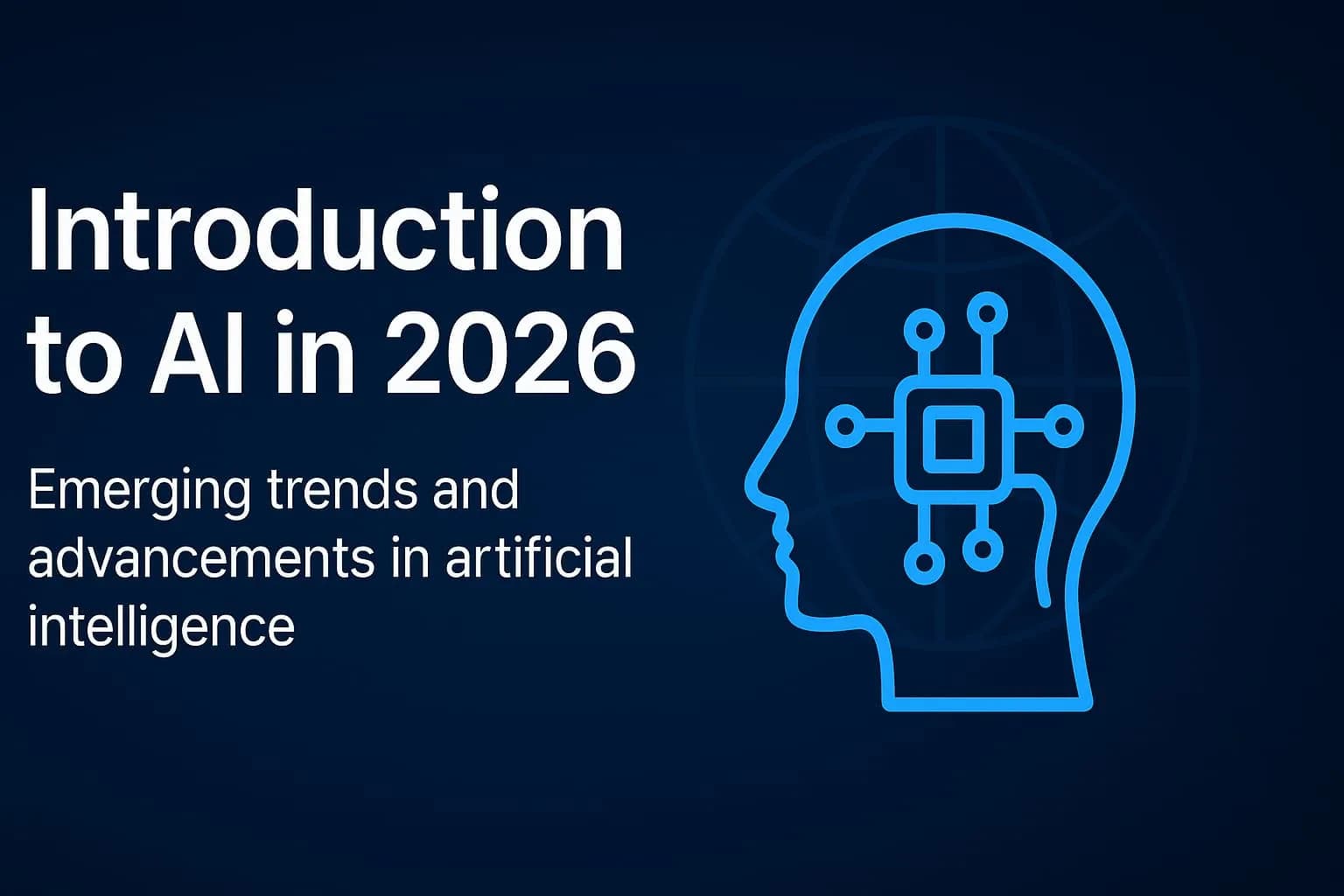Introduction to AI in 2026
As we step into 2026, artificial intelligence (AI) continues to redefine the technological landscape. Building on the foundations laid by models like Google Gemini AI and Claude AI by Anthropic, which we explored in previous articles, the year promises groundbreaking advancements. This article delves into the emerging AI trends that will shape industries, enhance business operations, and address ethical challenges. Visit our main page at Black Whale Dev for more insights into how we leverage AI in development and marketing.
1. The Rise of Generative AI 2.0
Generative AI, which gained prominence with tools like ChatGPT, is evolving into its second generation in 2026. This iteration, often dubbed "Generative AI 2.0," focuses on enhanced creativity, context-awareness, and real-time adaptability. Unlike its predecessors, these models can generate not only text but also highly realistic multimedia content, including videos and 3D models, with minimal human input. Businesses are already integrating these tools to revolutionize content creation, as seen in our article on Meet ChatGPT's Agent Mode.
Key features include improved natural language understanding, enabling seamless conversations, and the ability to personalize outputs for diverse audiences. For web developers, this means automated design prototypes and code generation, aligning with trends discussed on Black Whale Dev. The challenge lies in managing the computational power required, but cloud-based solutions are making this accessible.
2. Ethical AI and Regulatory Frameworks
As AI becomes ubiquitous, ethical concerns are at the forefront. In 2026, governments and organizations are rolling out stricter regulations to ensure transparency and fairness. This includes mandatory AI impact assessments and the development of "explainable AI" systems that allow users to understand decision-making processes. Our exploration of NotebookLM AI highlighted its business applications, and now, ethical considerations are shaping its evolution.
Companies are investing in bias detection tools and diverse datasets to mitigate risks. For instance, the European Union's AI Act, expanded in 2026, sets a global standard, influencing how businesses at Black Whale Dev approach AI-driven projects. This trend not only protects consumers but also builds trust, a critical factor for digital marketing success.
3. AI-Powered Business Transformation
AI is no longer just a tool; it’s a core driver of business strategy. In 2026, we see AI optimizing supply chains, enhancing customer service with virtual agents, and predicting market trends with unprecedented accuracy. Our article on EspoCRM Integration demonstrated how AI streamlines customer relationship management, a trend set to deepen.
Small and medium enterprises are adopting AI platforms to compete with larger corporations, thanks to affordable APIs and pre-built solutions. At Black Whale Dev, we’ve seen how AI tools like those compared in Comparing HubSpot, ActiveCampaign, and Mailchimp empower marketing teams. The focus is on hyper-personalization, where AI tailors experiences to individual preferences, boosting engagement rates.
4. The Expansion of AI in Web Development
Web development is undergoing a transformation with AI at its core. In 2026, AI-driven tools are automating code debugging, optimizing user interfaces, and even predicting user behavior to enhance website performance. This aligns with our expertise in Black Whale Dev’s Website Development category.
Advanced platforms are using AI to create responsive designs that adapt in real-time to different devices. Moreover, AI-powered SEO tools, building on our insights from Understanding SEO and Google’s Search Engines, are refining keyword strategies and content relevance, ensuring websites rank higher on search engines.
5. AI and Sustainability
Sustainability is a growing concern, and AI is playing a pivotal role in 2026. From optimizing energy consumption in data centers to predicting climate patterns for agriculture, AI is helping businesses reduce their carbon footprint. This trend complements our mission at Black Whale Dev to innovate responsibly.
Companies are using AI to design eco-friendly products and monitor environmental impact. For example, AI models are analyzing data to suggest sustainable practices, a topic that could expand our coverage in future articles like those in the AI Models category.
Conclusion
The AI trends of 2026 signal a future where technology and humanity converge more closely than ever. From generative AI advancements to ethical frameworks and sustainable practices, these developments offer immense opportunities. At Black Whale Dev, we’re excited to lead the charge, leveraging insights from our AI Models blog to empower businesses. Stay tuned for more updates as we navigate this transformative year.
